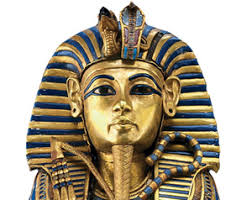 Egypt here represents the land, the two Pharaohs represent two kind of leadership disposition. The two Pharaohs lived at different eras and were particularly noted to rise through two different dynasty.
Egypt here represents the land, the two Pharaohs represent two kind of leadership disposition. The two Pharaohs lived at different eras and were particularly noted to rise through two different dynasty.
The two Pharaohs’ specific names were not mentioned in the bible, but they were differentiated as follows: Pharaoh in the days of Joseph, the second is Pharaoh in the days of Moses during the exodus of Israel from Egypt to Canaan.
The Pharaoh in the days of Joseph the son of Jacob was a type of leader with personality attributes as follow:
- He believed in divine help. If God could not relate through him he wouldn’t bother showing him personal dream.
- He knew his limitations, he sought for a man who can interpreter the dreams
- He was willing to accept help. It is one thing to seek or have need of help, it is another thing to be willing to accept help from others.
- He was not threatened by the success of his officers. Many leader will always rob their subject of any credit due to them. They go as far as kill more brilliant people in their team, bury their great ideas or sack such officers.
- He is a trusting leader who could delegate roles and responsibilities without being overbearing. Once he placed Joseph in charge he never poke his nose or meddle into the affairs of the delegate
- He is a listening leader, he listened to his people whenever they cry to him
- The welfare of his people is topmost on his list, his top agenda is to create enlargement for his people. He created prosperity for his citizens.
- He is a visionary leader who could see through the long-term counsel of Joseph. The deep calls on the deep.
- Even in precarious season of famine, he raised a great nation – Egypt becoming the world new civilization, the center of commerce and prosperity for nations around it. This showcases the power of a strong leader.
- Lastly, the Pharaoh of Joseph’s day was considerate and sympathizers with the weak, vulnerable ones and strangers.
Pharaoh of the Exodus
- He has no regard for divine things, he has no honour for Moses and his messages even though he knew he was from God.
- He doesn’t know his limit, if he knew he wouldn’t be arguing with Moses on obeying the call of God for Israel.
- He doesn’t seek for true help that could help established the kingdom for him and the citizens.
- He was not a secured king, he was competitive. Instead of accepting the divine hand in the matters, he called his magicians to compete with Moses the servant of God.
- He doesn’t seem to trust, not God, Moses or the Israelites who were his servants. He believed the call for freedom was a ruse to cover up for idleness.
- He is not a listening leader but a selfish one who will always want to have his way without deep thought of the consequence of his decisions on his subjects. He made life bitter for his slaves the Israelites that it took God’s interventions.
- The subjects’ welfare is relegated behind his stubborn and obstinate quest. Even when the Egyptians, his citizens were visited by God’s wrath he remained adamantly committed to the path of destruction.
- He is non-visionary, he is short term shallow thinker who respond to momentary impulse without consulting with the full picture and implication of his action. I still find it difficult to grasp his degree of obstinate that made him follow an enemy through unusual supernatural divided sea.
- He is a leader that brings shame. His reign brought poverty, destruction and death into its trail.
- The Pharaoh of the Exodus was hardened to the weak and vulnerable. He is self centered, magnify personal over public good.
What type of leader are you?
The same land, different outcomes.





